Equitable Access to Health & Wellbeing
Health and wellness inequities are preventable burdens often rooted in social injustices, correlated with race and poverty. Moreover, disparate health and wellness in our communities creates a vicious cycle that increases the probability of generational poverty for those without access. This creates burdens not only to the individual but to whole subpopulations over time. Exposure to environmental toxins, access to healthy food, and experiencing a safe environment are just a few examples of factors disproportionately impacting racial minorities and/or those of lower socio-economic status. In the areas in which CCI operates, over 35% of the families are in poverty or Asset-Limited Income-Constrained, Employed (ALICE)*.
Acknowledging the structural impacts of these disparities, the Center for Civic Innovation fosters research aimed at addressing health and wellness issues in urban areas, particularly those in legacy industrial landscapes.
*The United Ways of Indiana, (2018) ALICE: A Study of Financial Hardship
Related Projects
-
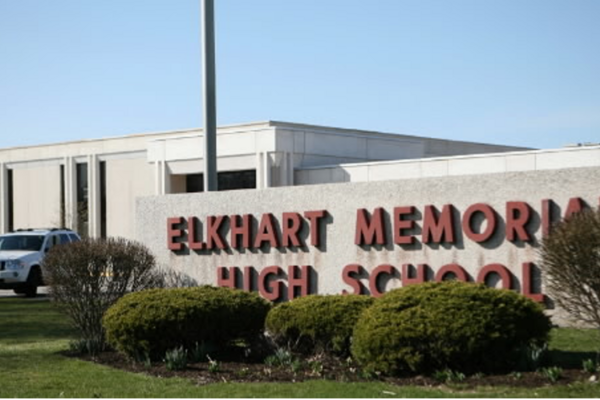
Bilingual Services
To bridge the communication gap between non english speaking families and schools, this project included a literature review of interviews with local Elkhart Community Schools teachers, research on best solutions in other communities, research on best technological support, and more. Interns worked closely with the Engineering, Technology, and Innovation Department to promote future implementation of the solutions proposed within the schools.
-

CARE Network
Identifying and accessing social services is critical in aiding vulnerable individuals and families in their move toward self-sufficiency. The Indiana 211 Partnership works with Indiana United Way, and its local subsidiaries to maintain a database and provide referrals to assist individuals reintegrating from incarceration. CCI is working with community service providers to develop innovative solutions for keeping their information up-to-date.
-
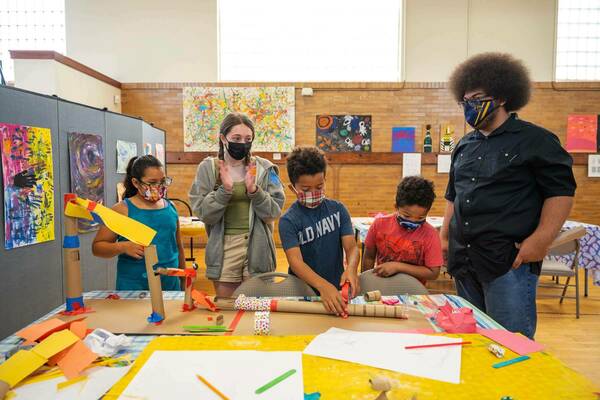
CCI Design Thinking Makerspace
CCI interns researched existing makerspaces and design thinking curriculum to implement a makerspace and create daily lesson plans focused on design thinking. The team then implemented these lesson plans during a week-long camp for middle school students at CCI's makerspace. The makerspace operates year-round within CCI's Youth Programs.
-

Church Community Services
Interns partnered with Church Community Services to design a Food Preference Survey based on people’s interest in fruits, vegetables, and herbs to better inform the selection of produce cultivated in community gardens. The team also collaborated with a group of medical students who contributed to the database and assisted with survey design. The results of the project will help Seed to Feed and the Food Pantry grow as a community.
-
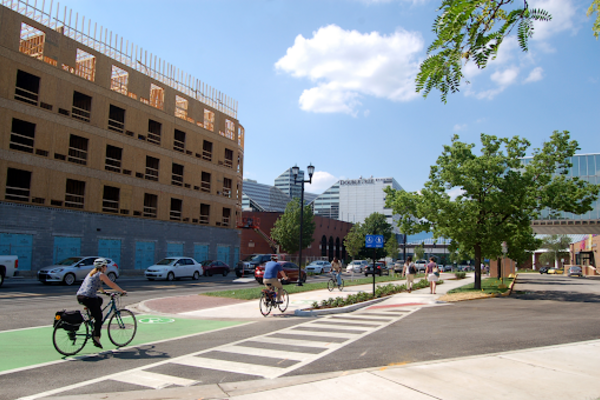
Complete Streets
The Complete Streets Initiative began in South Bend in 2015. The approach designs roads with all users in mind, by providing infrastructure such as bike lanes, raised crosswalks, ADA accessible ramps, and more. The CCI intern team created a scorecard to educate the public on the City’s implementation progress and analyzed crash data to quantify injuries and fatalities to ensure equitable distribution of future projects.
-
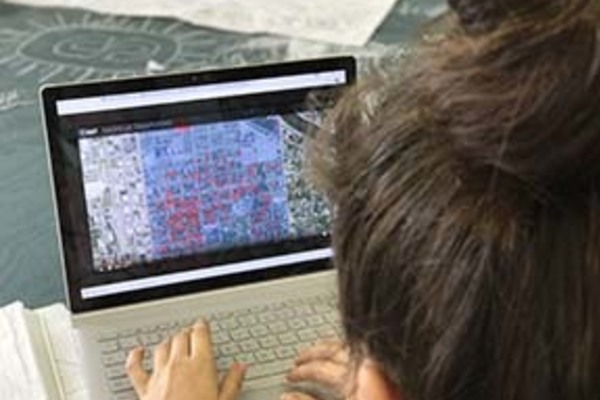
dataMichiana
Data are developed with community partners and used for planning and action by stakeholders. dataMichiana will be the local platform with National Neighborhood Indicators Partnership, managing and providing data in the Michiana region served by CCI to create useful data layers for South Bend with an equity lens with applications to education, housing, workforce development, and/or food access.
-

Elkhart County Food Data
Much is yet to be understood about Elkhart County's current food assets and strengths. CCI and the Elkhart County Food Council (ECFC) are collaborating to build data and knowledge to improve coordination in food access efforts throughout Elkhart County. These efforts will include recruitment of food pantries in the county for implementation of a survey tool that generates data on food inventory estimates and adding capacity for food asset mapping.
-
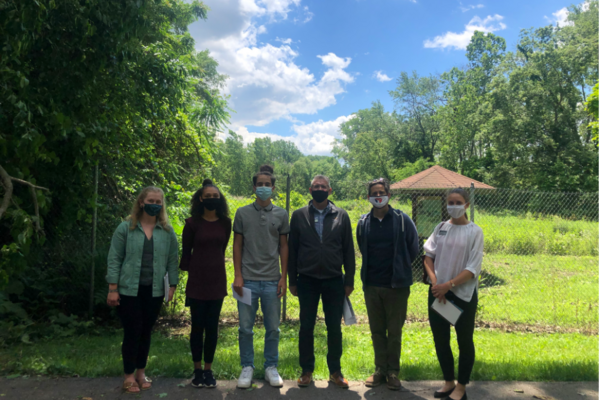
Elkhart Trails
Working to improve wayfinding of the New River Greenway Trail, interns created a detailed proposal of recommended sign locations, signage details, a budget, and an interactive map. The interns pitched this proposal to stakeholders working on the implementation of the trail signage and included additional recommendations, including a low-cost community mural on the Indiana Avenue underpass and mile markers.
-

Food Information Network App Design
To address the issue of limited access to healthy food options amongst vulnerable populations, CCI partnered with Notre Dame faculty, Purdue Extension, and Saint Joseph County Health Department FINs to address food-decision support and access problems using recommendation technologies based on user needs and preferences. The team created an initial prototype of an app that gathers and stores user information and compiled a written report on the sustainability of a hub model for physical access.
-

Food Information Networks
Identifying and accessing healthy food options is critical in aiding vulnerable individuals and families who do not live in close proximity to reasonable sources of food. Further complicating the issue is knowing what food is available and whether it meets one’s nutritional needs. CCI is working to aggregate existing local/global food information into a complex heterogeneous food network while building a recipe recommendation system based on the Food Information Network (FINs).
-
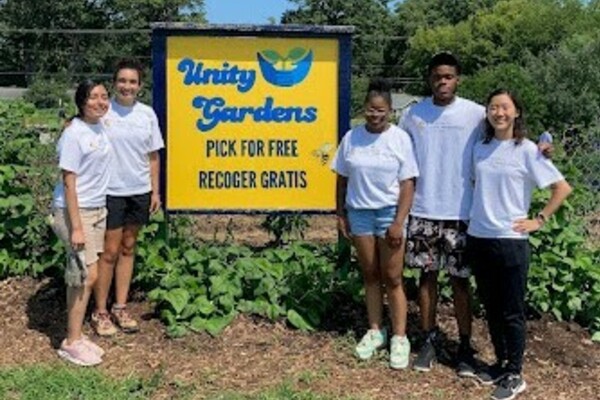
Food Information Networks (FINs) 2022
To better understand food access in the South Bend region, FINs developed a survey to confirm the research team's identified shopper archetypes: menu, inventory, and adaptive. Additionally, FINs rolled out a pre-pilot program to have groceries delivered to a centralized location (known as a 'food hub') for participant pick-up. The data gathered will be used to inform development of a computer application and food hub model.
-

Food Information Networks (FINs) 2023
FINS has partnered with the National Institute of Food and Agriculture in collaboration between the University of Notre Dame and the University of Michigan. The goal of the project is to thoroughly understand the barriers to access to healthy food, develop technological supports, and deploy and study interventions in two cities – South Bend, Indiana, and Detroit, Michigan. The CCI interns focused on developing a community relations plan with the Rum Village neighborhood and building a foundation for the later adoption of a pilot mobile app under development by the research team.
-
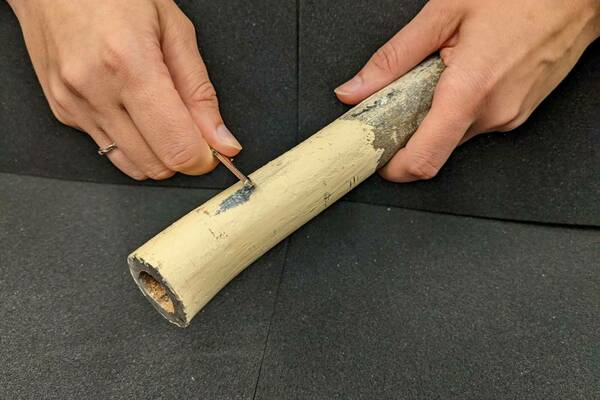
Lead Service Lines
CCI interns partnered with the City of South Bend Divisions of Engineering and Water Works to assist them in gathering data on the materials of water service lines entering houses throughout South Bend. The team developed a questionnaire that included educational materials and a step-by-step walkthrough for testing home water service lines. The City will use these figures to determine what areas should receive prioritization for next steps and remediation.
-
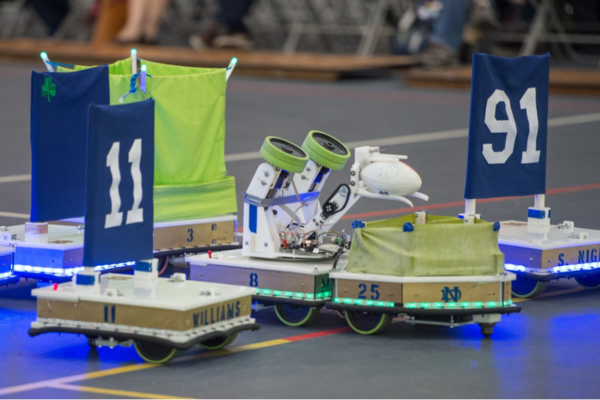
Mentoring with 100 Black Men of Greater South Bend
CCI partnered with leaders and mentees from 100 Black Men of Greater South Bend to explore enhancements to their mentoring program. This team designed and scheduled 10 STEM-related events and assisted with a TechPoint Foundation 4 Youth Grant that will fully fund a robotics team for 100 Black Men of Greater South Bend.
-
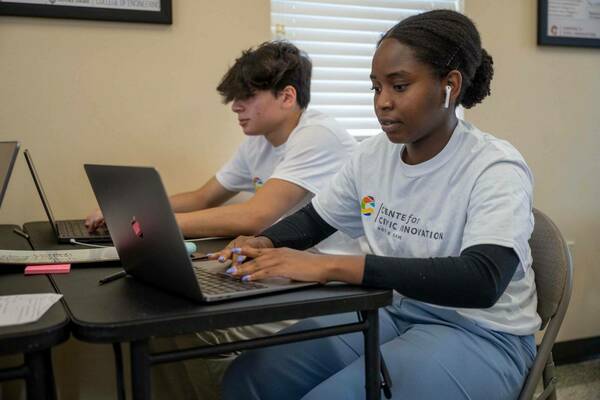
Michiana Community Health Coalition
The Michiana Community Health Coalition (MCHC) is a regional partnership that aims to establish a stronger network between Community Health Workers (CHWs) and Certified Addiction Peer Recovery Coaches (CPARCs). CCI interns worked towards understanding the needs of the coalition members by developing and executing a survey and 2 focus groups. An analysis of the survey data and a comprehensive focus group report was completed.
-
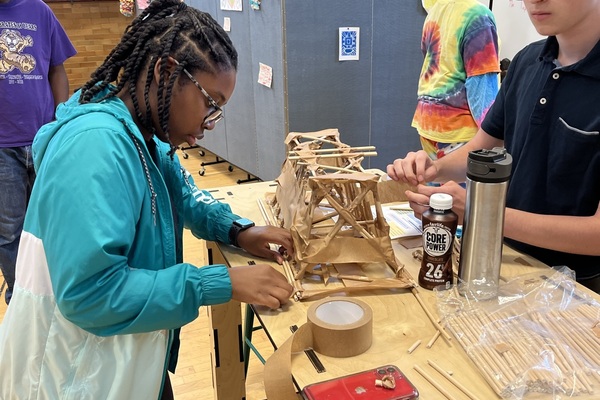
Neighborhood Planning
The Neighborhood Planning Groups’ main focus this summer was to identify the needs of two different neighborhoods in South Bend in order to create new channels of engagement and foster representation within STEM industries and community organizations. They were able to develope a STEM competition called “STEMFest” that aims to introduce students to engineering topics and spark an interest in STEM subjects while simultaneously helping the neighborhood foster a sense of community. After the City of South Bend collaborated with residents of Rum Village to lay the foundation for the implementation of a future project inspired by the neighborhood plan. Working closely with the Rum Village Neighborhood Association, the team aided them in creating a website, email list, business list, and outreach methods that will help the community be more unified in achieving their future goals.
-

NNN - Booker T. West Playground Design & Implementation
These project interns collaborated with the Near Northwest Neighborhood (NNN), Inc. to plan the construction of Booker T. West Park at 715 Leland Avenue in conjunction with the St. Paul Bethel Baptist Church. By working alongside the key stakeholders of the project, the interns prepared the site by removing debris and dead trees/shrubs and building a retaining wall then created an implementation plan that provides a comprehensive summary of all of the work, research, insights, and connections that CCI interns made over their seven week work period that will be needed to continue and complete construction of the park.
-

South Central WiFi
Access to WiFi in the era of COVID-19 is increasingly necessary for learning and work in low-income communities. CCI and the Elkhart Community Schools are partnering with MapleNet to deliver free or a reduced price rate home wifi service to ECS students. An additional assessment is being conducted to determine the need and potential for further WiFi access to households that do not qualify as low-income.
-
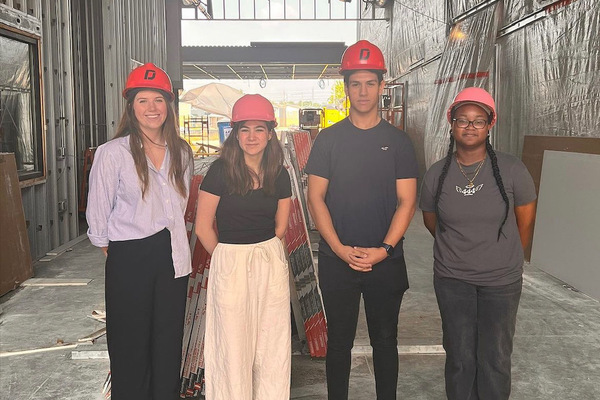
Tolsen Center
The Tolson Center for Community Excellence partnered with Elkhart Catalyst Interns to create a robust volunteer program to aid in day-to-day operations and special events at the new facility. The interns met with a variety of community volunteer leaders, and with their input, designed a volunteer application, compiled relevant training in a learning management system, and formulated a plan to recognize and retain volunteers.
-
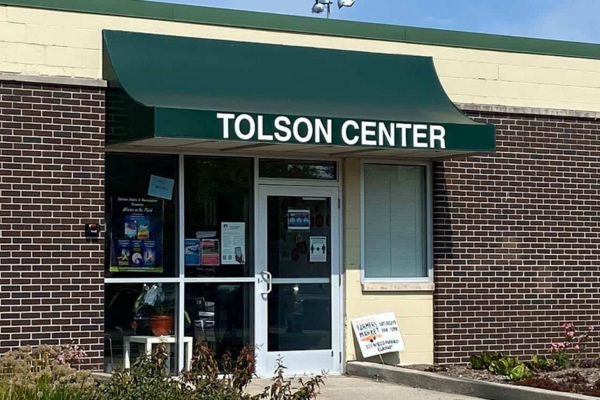
Tolson Neighborhood
A community engaged project working with local neighborhood residents surrounding the Tolson Center, this research collected asset information from residents bringing awareness to the resources rather than the issues within the neighborhood. Interns worked to highlight and visualize this information within several deliverables, including spanish/english brochures, a community cookout presentation, and an ArcGIS asset map.
-
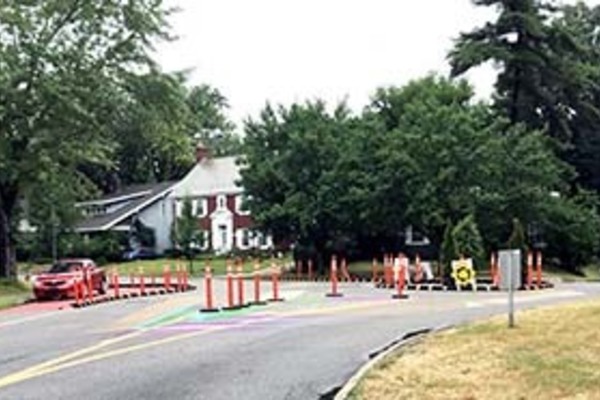
Traffic Calming
Vehicle and pedestrian safety is imperative for health and well-being in urban areas. CCI is collaborating with the Near Westside Neighborhood Organization and the City of South Bend to identify traffic calming needs in the area and inform the public about the City’s traffic calming program.
-
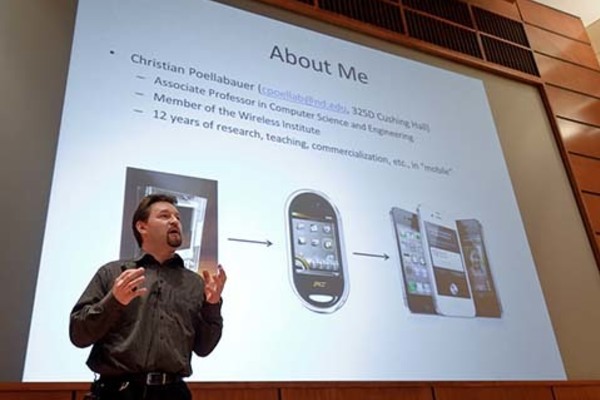
Wearable Devices
Fall detection for medical use has become a well-understood technology with devices now able to detect a hard fall in real-time while allowing it to sound or display an alarm. Much less attention has been devoted to near falls, where a patient may trip, become unstable, and/or experience dizziness. CCI is helping to correlate wearable device sensor data with near falls, which can be a very valuable indicator of whether patient therapy is meeting its desired impact.
Partner Organizations
- Rum Village Neighborhood Association
- Tolson Center for Community Excellence
- United Way St. Joseph County
- City of South Bend
- City of Elkhart
- St. Joseph County Health Department
- 100 Black Men of Greater South Bend
- Elkhart Community Schools
- Michiana Area Council of Governments (MACOG)
Related Faculty
-

Dr. Heidi Beidinger-Burnett
-

Dr. Jay Brockman
-

Dr. Nitesh Chawla
-
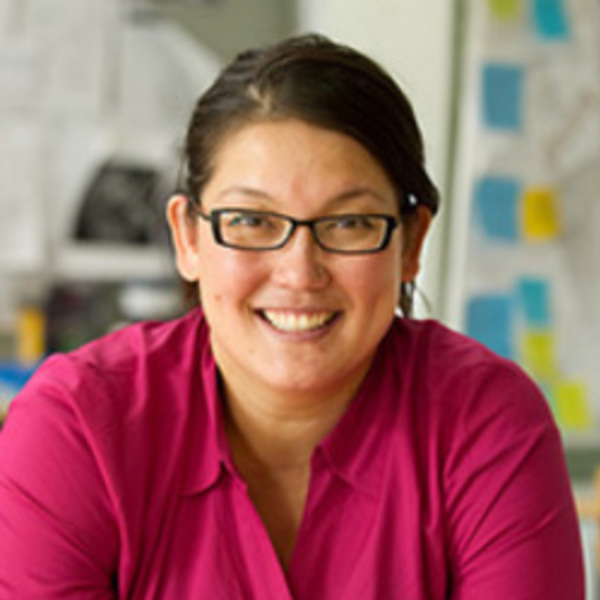
Ann-Marie Conrado, MA
-

Dr. Ronald A. Metoyer
-

Dr. Danielle Wood